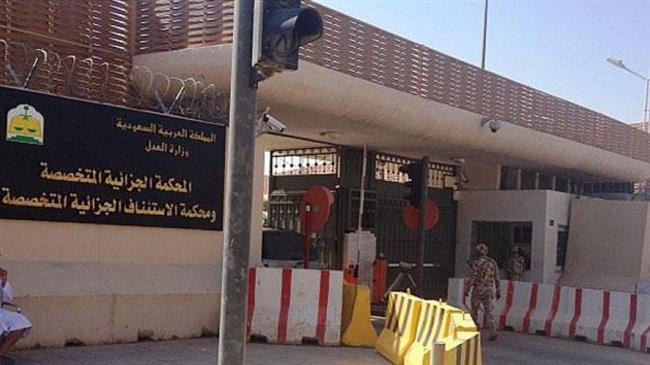
RNA - On Wednesday, the Specialized Criminal Court in the capital Riyadh found the defendant, whose identity was not immediately available, guilty of “joining a terror group called Tarot Battalion to destabilize the kingdom's internal security, targeting security personnel, carrying out acts of sabotage and chaos, obstructing roads, and involvement in divisive activities.”
On February 11, the same Saudi court sentenced a dissident to 20 years in jail on charges of throwing petrol bombs at the General Intelligence Building in Qatif, burning tires and preventing regime forces from reaching the site of anti-regime rallies.
According to Press TV, the court also imposed a travel ban of similar period on the unidentified man.
Late last month, Saudi officials put on trial a pro-democracy campaigner and anti-regime activist without the presence of a defense lawyer and letting members of his family know about the trial session.
According to a report published by the Arabic-language Khabir online newspaper, Hussain al-Sadiq, who has been held in jail for more than two years, was taken to the Specialized Criminal Court without informing his family.
Not having heard of their son for a while, they contacted the Criminal Investigation Department in the eastern city of Dammam, where they found Sadiq had already been put on trial.
Saudi Arabia has lately stepped up politically-motivated arrests, prosecution, and conviction of peaceful dissident writers and human rights campaigners.
Saudi officials have also intensified security measures in the Shia-populated and oil-rich Eastern Province.
Eastern Province has been the scene of peaceful demonstrations since February 2011. Protesters have been demanding reforms, freedom of expression, the release of political prisoners, and an end to economic and religious discrimination against the oil-rich region.
The protests have been met with a heavy-handed crackdown by the regime. Security forces have increased security measures across the province.
Over the past years, Riyadh has also redefined its anti-terrorism laws to also target activism.
In January 2016, Saudi authorities executed Shia cleric Sheikh Nimr Baqir al-Nimr, who was an outspoken critic of the policies of the Riyadh regime. Nimr had been arrested in Qatif in 2012.
847/940